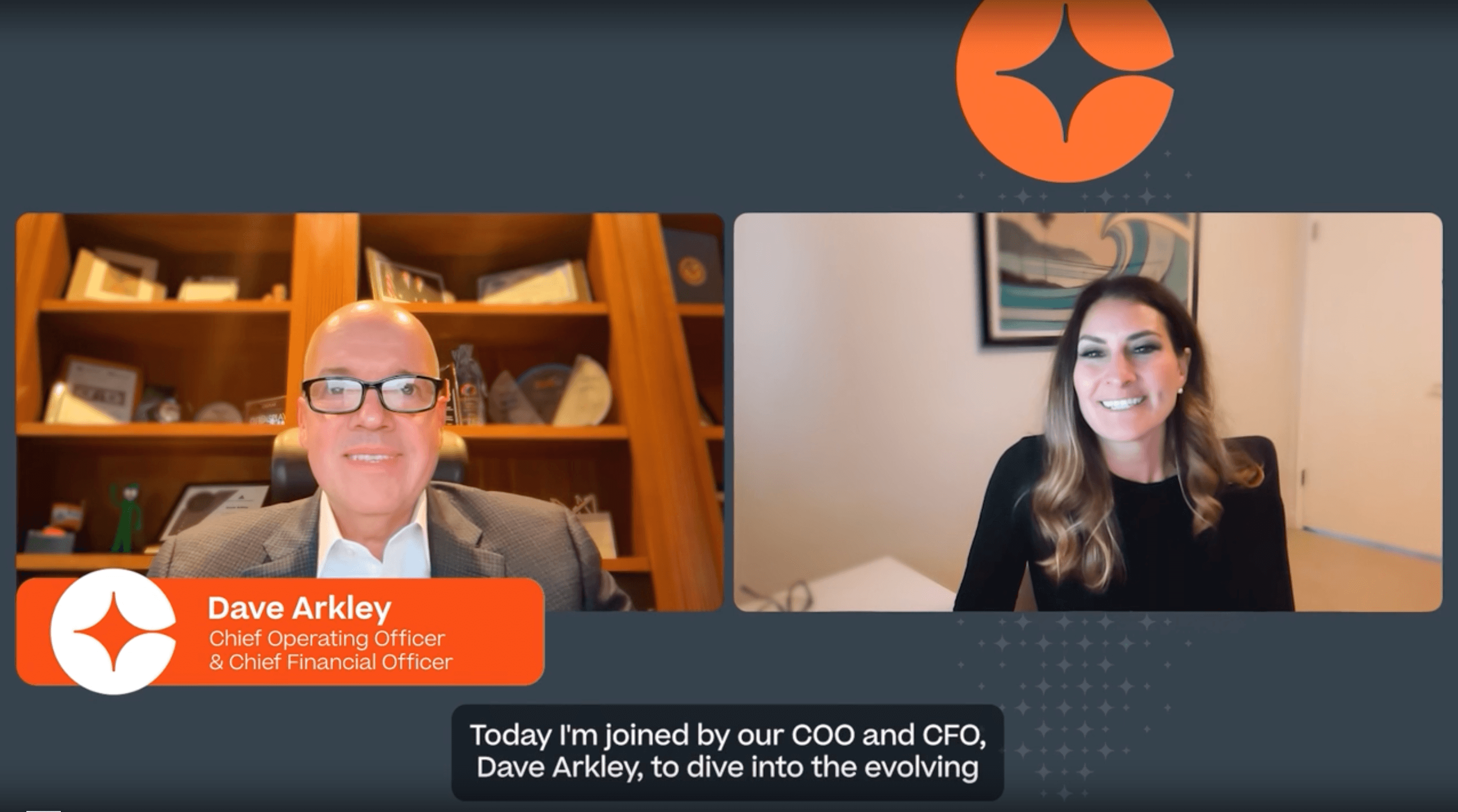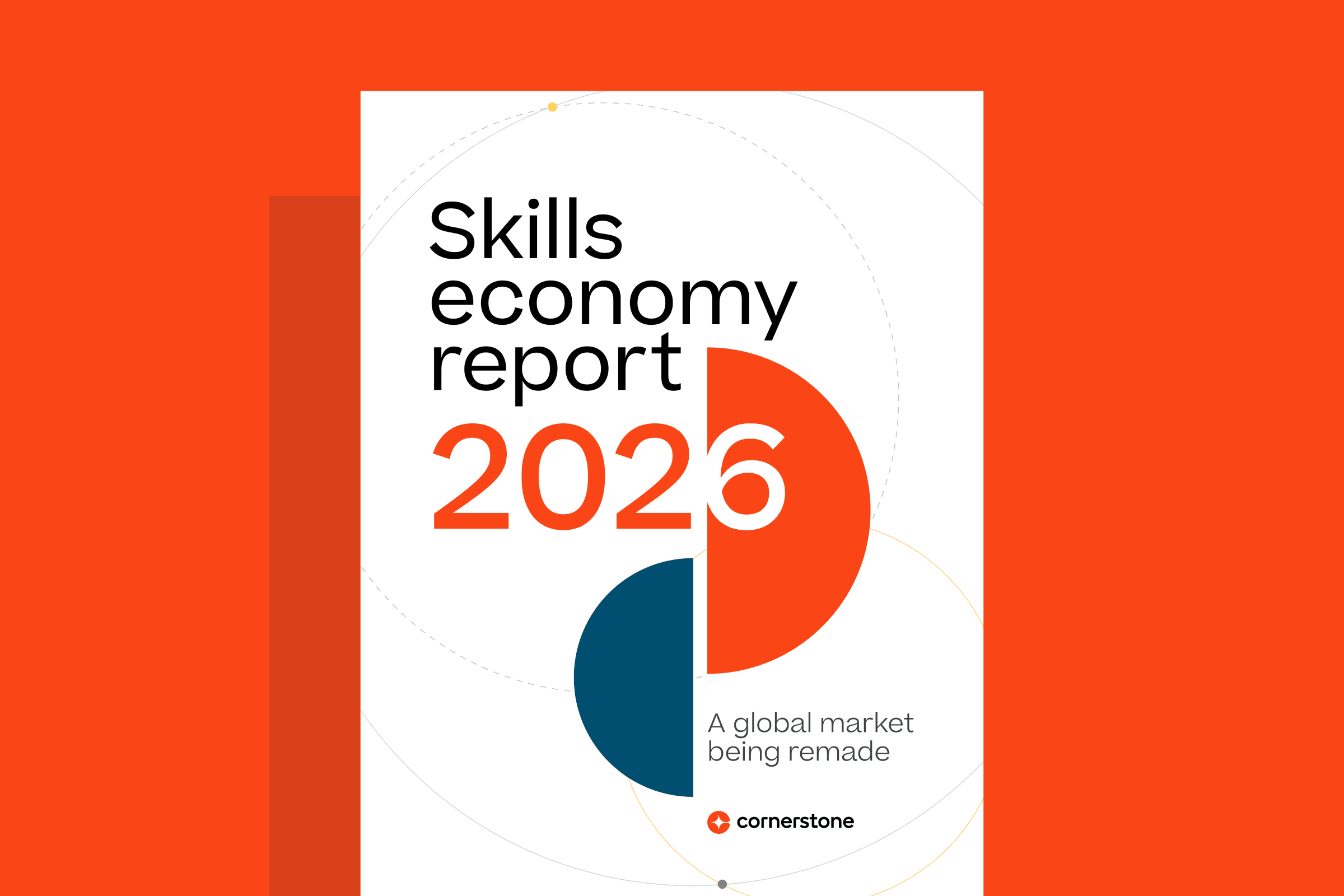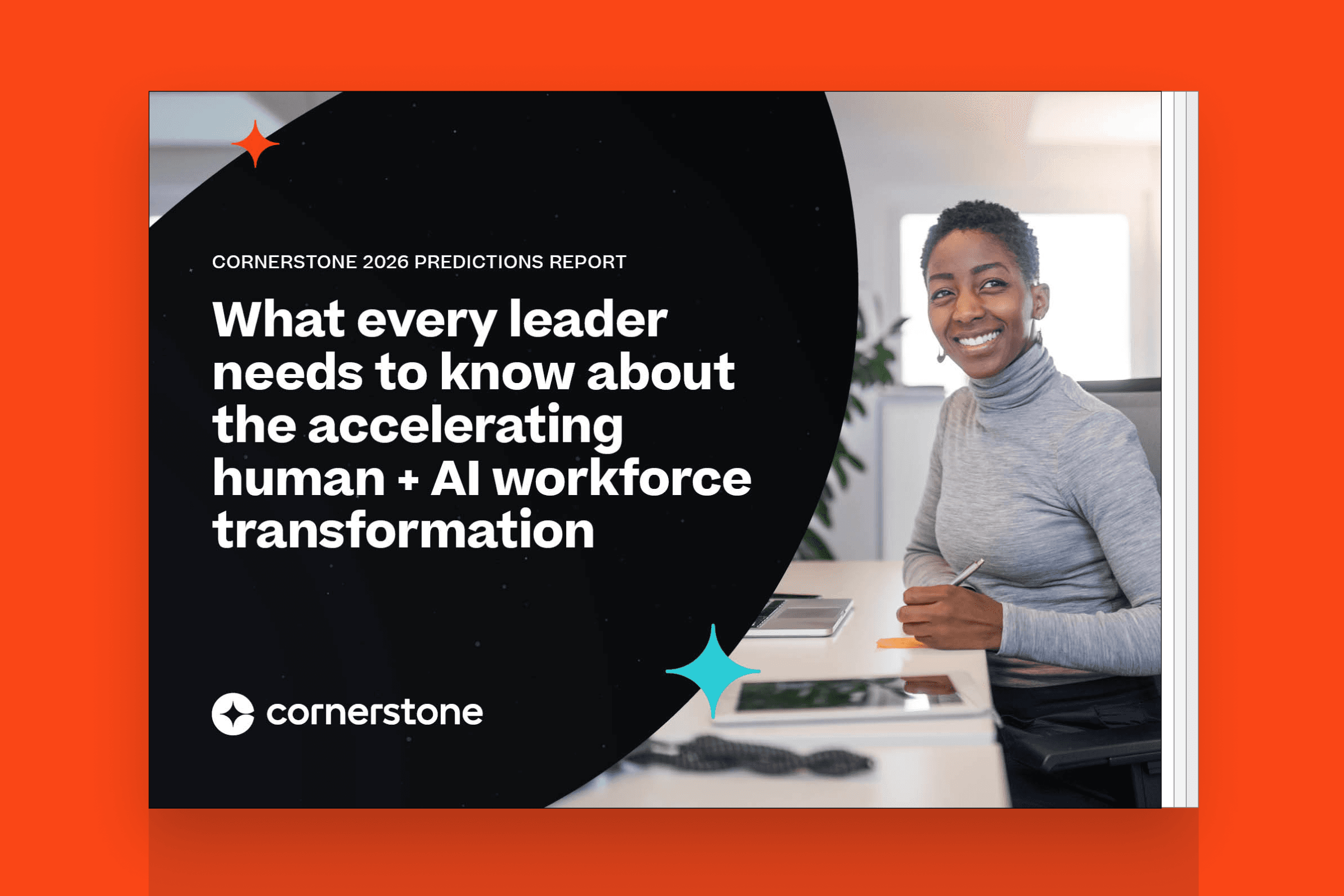As the job market constantly evolves, organisations seek to revamp recruitment and talent acquisition approaches for 2024. In an exclusive interview on Personnel Today, Andrew Brown, UK Regional Director for Account Management, RPO and Recruiting at Cornerstone, sat down with host and HR wellbeing editor Ashleigh Webber and discussed the prominent trends shaping the talent acquisition landscape.
A closer look at the top trends in talent acquisition
There is a constant buzz around artificial intelligence, everywhere from events to leaders' talks in boardrooms. But Andrew takes a closer look at what's important. It's the hunt for the right people with the skills that organisations are looking for. Dealing with finding great talent and fighting off the problem of nearly half the team leaving is a big deal for most companies.
Andrew dives deep into these issues, advocating for a return to a "back-to-basics' model. This revisits the timeless concepts and principles of talent acquisition: a strong employer brand and an understanding of what candidates want. What's genuinely different today is the candidate preferences: sustainability, diverse developmental pathways and a progressive work culture.
Before delving into the vast realm of AI and machine learning, it is essential to remember the basics. Perfecting the employer brand and aligning it with the candidates' evolving expectations is the launching pad to explore the broader horizons of technological solutions.
AI transforming the recruitment landscape

Talking about AI, Andrew mentions its impact on two critical areas: elevating the candidate experience and empowering recruiters and hiring managers. The early AI tools introduced in the talent acquisition space, primarily candidate-focused chatbots, have demonstrated varying levels of complexity. The advanced applications strive for a user-friendly candidate experience, similar to the Amazon level familiarity. The goal is to create a seamlessly enriching journey for candidates, making it easier to attract, connect and smoothly integrate them into the Applicant Tracking System (ATS).
Another aspect that Andrew highlights is how AI supports recruiters. It involves offering suggestions based on candidate profiles and successful matches and aiding recruiters through chatbots to streamline decision making and talent acquisition.
AI Pitfalls to Avoid
Artificial intelligence (AI) has taken employers' ability to identify potential hires to a more robust level than traditional applicant tracking software (ATS) that simply parses candidates' resumes for keywords. One compelling feature of AI recruitment tools is that they help companies reach out to passive candidates whom employers would otherwise miss. Many of them do so by using chatbots that proactively introduce themselves over text, email or social media to candidates that visit an organization's career page, but don't necessarily apply to a job.
But despite their potential, there are pitfalls that come with using AI for recruiting—my recent experience being one. Here are some other AI recruiting pitfalls and solutions to avoid them:
AI Can Be Biased, Just Like a Human
Pitfall: Developers of AI recruitment tools tout the technology's automated objectivity as a way to reduce human bias against older workers, minorities or religious groups. Developers even claim to improve diversity by teaching AI to seek candidates from under-represented demographics. But since AI learns by perceiving patterns in past behaviors, there may be hidden biases in your company's hiring that an AI solution will inevitably pick up.
The Society for Human Resource Management (SHRM) cautions that "if a company's highest performers historically have been identified as white males between 30 and 40 years old—because those individuals were frequently promoted into next-level jobs—that bias can inadvertently become built into algorithms that learn from talent management patterns."
Solution: Work with a vendor who is willing to customize a recruitment tool to avoid unconscious biases, and who will program the tool to actively diversify your candidate pool (regardless of past patterns).
AI Can Miss the Nuances of Social Media
Pitfall: There's potential for AI to misunderstand insights garnered from social media. Consider the individual who posts or re-tweets something reprehensible in order to expose how objectionable he or she finds it; what AI learns from this could affect that person's reputation.
Solution: Talk to your employment attorney. In some states, privacy laws prohibit using information found on social media from hiring decisions. Find out how to separate certain data pools such as social media, and potentially even omit them from your AI tool's hiring considerations.
AI Can Put You on the Wrong Side of the Law
Pitfall: Recruitment tools use closely-guarded proprietary algorithms that aren't subject to regulatory oversight, leaving HR in the dark about how the technology truly works. This can make companies susceptible to unexpected lawsuits or can hurt their reputation.
To complicate matters, multinational companies must comply with the EU's General Data Protection Regulation (GDPR) as of May 25, 2018. This regulation stipulates how individuals' personal data is collected, and includes information gathered from digital footprints and factors that reference, among other things, one's cultural or social identity. Compliance with GDPR may affect how even U.S.-based companies recruit.
Solution: New York City has instituted a task force to monitor the use of AI systems.Stay abreast of similar developments in cities where your company has a presence.
There's a great deal of promise behind AI from a recruiting standpoint, but there's a great deal of risk as well. Before AI recruitment becomes as ubiquitous as ATS software, HR leaders will need to consider all of the challenges that come with implementing the technology—and get ahead of them.
Cornerstone's AI journey and future vision
Andrew sheds light on Cornerstone's strategic use of AI, particularly in sourcing and generating intelligent recommendations based on past experiences. Cornerstone leverages data to predict metrics like hiring time and enhancing historical assessment techniques. Amid this tech adoption, Cornerstone emphasizes the need to tread carefully when employing platforms like ChatGPT. While these tools bring efficiency, there's a degree of uncertainty. Cornerstone is keen on creating partnerships to fortify AI-driven recruitment strategies, working hand-in-hand with pioneers.
AI-powered evolution of talent acquisition
As AI continues to evolve, the future looks incredibly promising, opening up endless opportunities for the fusion of technology and recruitment. This insightful chat with Andrew paints a picture of a future where AI seamlessly integrates with recruitment, creating an innovative and efficient talent acquisition landscape. Watch the full interview for insights and developments in the AI-powered evolution of talent acquisition led by organisations like Cornerstone.


